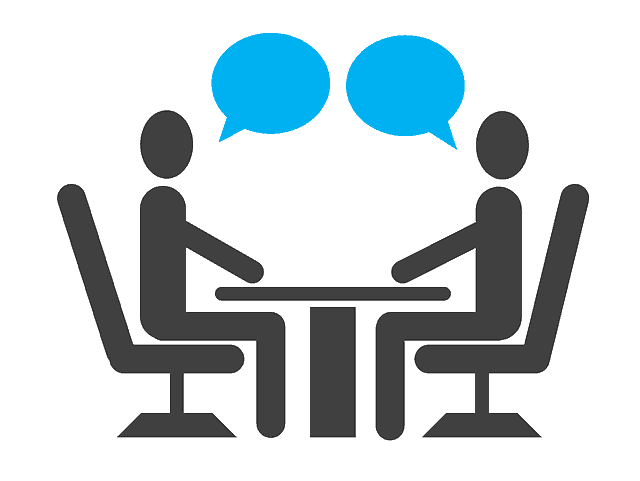If you last interviewed for a job five years, ten years, or even decades ago, you’re probably accustomed to the standard interview questions that have been used for ages. You might think that being prepared to describe your education and your greatest weakness will make you a shoo-in for your next big career move. That and getting dressed for the part used to cover the basic checklist, now you need to understand Behavior-Based Interviews.
Not so fast. Employers are now increasingly using a process called behavior-based interviewing, which is much more challenging. The good news is that there are a few things that you can do to both understand the process and prepare to ace that next job interview.
Businesspeople, teamwork. Group of multiethnic busy people working in an office
What is a Behavior-Based Interview?
A behavioral interview is much different than a traditional job interview. Behavior-based interviewing, also called competency-based interviewing, seek to discover how you acted and reacted in past specific employment-related situations. The theory is that the behaviors and traits that you displayed in the past will predict how you will perform in the future.

Behavior-Based Interviewing vs. Traditional Interviews
Behavioral interview questions are often thought to be as much as 50% more effective in screening potential employees than traditional interview questions. For instance, a traditional interview is more talk with little substance. The questions ask for a lot of “tell” and very little “show.”
A behavioral interview turns the tables on this process and essentially asks you to describe situations, or tell stories, that answer a question or show that you have a particular skill. Instead of asking how you “would” behave in a particular situation, you’ll be asked to describe a real situation and tell how you “did” behave.
How to Best Prepare For and Succeed in an Interview
Most behavioral interviews follow a logical process. The company or interviewer will identify some skills or traits that they feel are essential for the position. Then, they will develop some behavioral interview questions that are meant to determine whether or not you possess those qualities.
Your first preparation step should be to study the job posting again and see if you can get some ideas about skills and traits that the company will emphasize. Do they mention teamwork or organization skills several times? What about conflict resolution or leadership?
Once you have a list, research behavioral interview questions related to those traits and begin formulating some stories. You should have several 30 to 90-second stories ready to tell about such things as a former job crisis, your part on a team, leadership, and overcoming work challenges.


Answering a Behavioral Questions in your Interview
When you answer a behavior-based interview question, be specific. If you are too vague, your authenticity might come into question. Most guides to successful behavioral interviewing recommend using what is called the STAR process when answering questions. This involves describing:
- The Situation or Task you were involved in,
- The Action that you took, and
- The Result of the action.
The beauty of behavior-based interviewing is that there are no wrong answers. However, your delivery can be off if you don’t understand the process and its goal. If you take the time to become familiar with the process, practice your stories, and thoroughly research the position, you should have no trouble acing your next behavioral interview.




